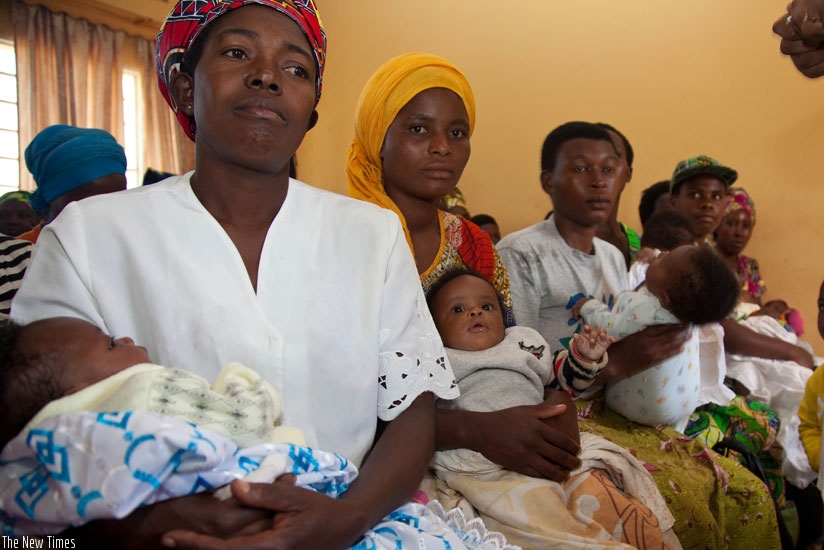A three-month national campaign to sensitise Rwandans to join the community-based health insurance scheme, locally known as Mutuelle de Sante, will be launched today, an official at the Rwanda Social Security Board (RSSB) has said.


A three-month national campaign to sensitise Rwandans to join the community-based health insurance scheme, locally known as Mutuelle de Santé, will be launched today, an official at the Rwanda Social Security Board (RSSB) has said.
Alexis Rulisa, the head of the Mutuelle de Santé at RSSB, told Saturday Times that the campaign will be launched during today’s community work, Umuganda, with officials at different levels of government delivering a message to join the insurance scheme to people at the grassroots.
The national launch will take place in Rukara Sector, Kayonza District, and was due to be presided over by Prime Minister Anastase Murekezi.
The subscription rate to Mutuelle de Santé is at 63 per cent, which means that more than 3.5 million Rwandans are yet to register for the insurance scheme, nearly three months since the RSSB took over its management.
For three months, starting from today, several activities will be conducted to sensitise Rwandans, especially the youth, to subscribe to Mutuelle de Santé.
Rulisa said the awareness campaign will be conducted through community meetings, media, as well as taking registration services for the scheme closer to the people.
"We hope that these measures will make a difference in boosting subscription to Mutuelle de Santé. We would also like to invite all Rwandans to help us in this campaign by telling their neighbours, relatives, and employees that it’s important to get health insurance,” he said.
While the government tasked the RSSB to manage Mutuelle de Santé when subscriptions to the scheme were dropping, Rulisa said RSSB hopes to attract people back to the scheme by improving its financial management which is critical in the running of the fund.
He said some subscribers were giving up on the scheme when they couldn’t access services such as the medicine they needed from hospitals and pharmacies in the country.
RSSB hopes to reverse the trend by paying hospitals and pharmacies on time so they can procure the medicines needed by patients insured with Mutuelle de Santé, Rulisa said.
"We are going to explain to the people that there are a lot of benefits for subscribing to Mutuelle de Santé because we are going to improve our services,” he said.
Youth reluctant
While medical insurance is about solidarity among members of the scheme, officials at RSSB say many Rwandans are yet to adopt the habit of being covered all the time, leaving those who are sick or susceptible to get sick with the burden of paying for their own medical services through Mutuelle de Santé.
Rulisa said some people who feel that they don’t tend to get sick, such as young people who live alone and have got no families to look after, tend to be reluctant to join Mutuelle de Santé.
This, he said, makes it challenging to operate the scheme because the less subscribers it gets, the harder it becomes to raise enough funds for medical care.
"We need to convince the youth that the right time to get health insurance is when they are healthy,” Rulisa said.
RSSB targets to realise 100 per cent subscription rate to Mutuelle de Santé by December and the three-month sensitisation campaign that kicks off today is one of the means to achieve that target, Rulisa said.


